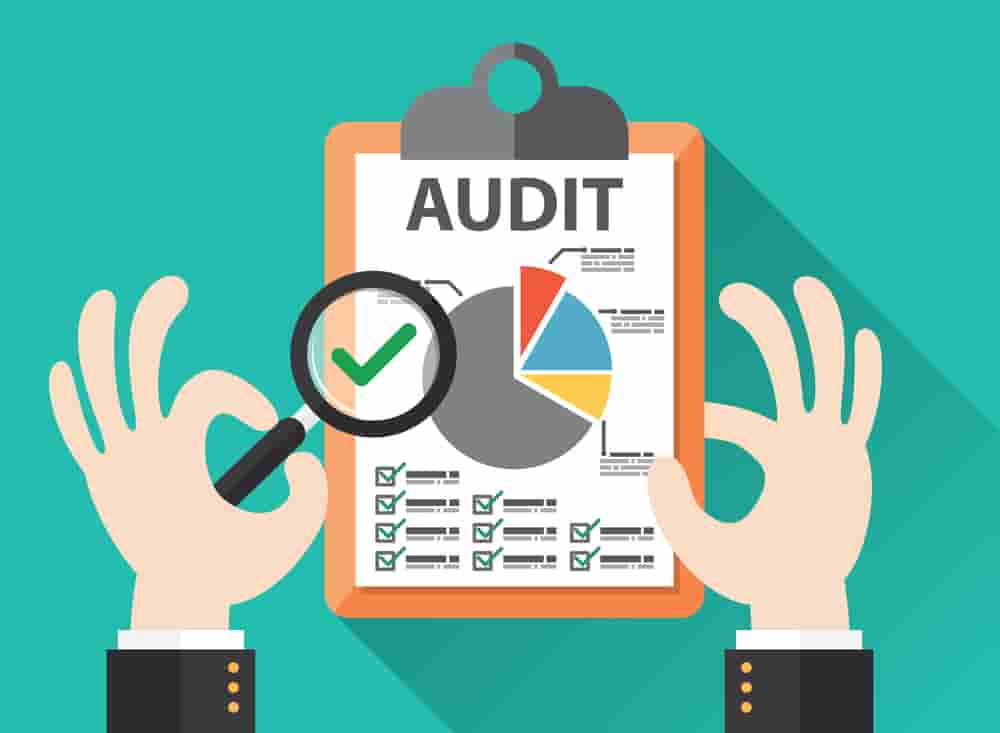Investment decisions are among the most important decisions made by investors and companies alike. These decisions rely heavily on the financial information provided by companies, which must be accurate and reliable. In this context, the impact of auditing comes into play as a key means of ensuring the quality of financial statements. Auditing is not just a routine procedure; it is a vital process that enhances investor confidence in a company’s financial performance, facilitating informed investment decisions.
The Role of Auditing in Transparency
Auditing is a key tool used by auditors to ensure financial transparency. This process reviews financial statements to ensure their accuracy and compliance with accepted accounting standards. For example, auditors review financial records, verify the accuracy of the figures, and ensure that the statements reflect the true financial position of the company.
This transparency contributes to providing investors with a clear picture of a company’s performance. When investors know that financial information has been thoroughly audited, they are more willing to invest. Studies indicate that companies with a high level of financial transparency enjoy faster growth rates and greater investor confidence.
Impact on Investment Decisions
Auditing and the accuracy of audited financial statements significantly impact investor decisions. Investors rely on financial reports to assess the viability of their investments, and any errors or ambiguities in these reports can lead to poor decisions. Investors should be aware of common audit errors, such as misstatements in asset valuations or inaccurate valuations of liabilities.
If a company presents false earnings or inflates sales figures, investors may be tempted to invest in the company, leading to significant losses later when the truth is revealed. By providing accurate and reliable information, auditing enhances investors’ ability to analyze opportunities and risks. Investors who trust financial statements are more likely to make positive investment decisions, such as increasing their investments or entering into new partnerships.
Factors Influencing Auditing

Factors Influencing Auditing
There are multiple factors that impact the effectiveness of the audit process, including the approved accounting standards, the professional skills and experience of auditors, and the regulatory environment in which companies operate. Corporate governance is an essential part of this environment, promoting a culture of transparency and accountability within companies. The more stringent the standards, the more effective the audit process will be in uncovering errors and risks.
The Saudi Capital Market Authority (CMA) is one of the important regulatory bodies working to promote accounting standards and ensure the quality of auditing in the Kingdom. The Authority seeks to improve financial transparency and enhance investor confidence in the financial markets, which contributes to making informed investment decisions.
The Importance of Accurate Financial Statements
The accuracy of financial statements is not just about numbers; it also relates to the integrity and transparency of information. Accurate financial reports enhance a company’s reputation and contribute to building strong relationships with investors. Therefore, auditing is not just a routine procedure; it is an essential component of achieving success and sustainability for companies.
How Auditing Affects Transparency
Financial transparency is a key factor that investors rely on when making investment decisions. Auditing helps improve transparency through a thorough review of financial statements, which enhances investor confidence. Achieving transparency is not just a local matter; it is also a key component of the OECD framework, which encourages the promotion of good practices in financial transparency across its member countries.
Auditors uncover inaccurate or ambiguous information, which helps reduce financial risk. When investors can rely on audited financial statements, they are more willing to invest in companies, which positively impacts financial markets.
Building Trust Between Investors
Trust between investors and companies is a fundamental pillar of business sustainability. By providing accurate and reliable information, auditing contributes to building this trust. If investors discover that financial statements have not been properly audited, this can lead to a loss of confidence, leading to a reduction in share value or even a withdrawal of investment.
This situation makes companies more vulnerable to risks, such as financial misappropriation, which can occur without proper transparency and oversight. Therefore, having effective audit procedures is an essential part of companies’ strategies to mitigate these risks.
Effective Audit Tools

Effective Audit Tools
Effective audit tools include multiple techniques that help auditors assess the accuracy of financial statements. These tools include data analysis techniques, statistical testing, and document reviews. Due diligence is also an important step in the audit process, as it involves examining all aspects of a company’s financial and control operations before making any investment decisions.
This process helps identify potential risks and provide a comprehensive assessment of the financial position, enabling investors to make informed decisions. A strict due diligence policy can mitigate the effects of financial misappropriation and enhance the credibility of financial information.
How Auditing Improves Data
Auditing contributes to improving the quality of financial statements by correcting errors and providing recommendations for improvement. When discrepancies are discovered, auditors provide detailed reports highlighting potential errors. This not only helps correct the figures but also fosters a culture of transparency and accountability within companies.
Consequently, improving financial statements enhances a company’s reputation in the markets, making it easier to attract new investors. By implementing effective auditing practices, companies can strengthen their competitive position and achieve sustainable growth.
Auditing and Investment Risk

Auditing and Investment Risk
Auditing is a fundamental means of reducing investment risk, as it helps ensure the accuracy of financial statements and detect potential errors. Companies that lack accurate auditing processes are more vulnerable to financial risks, such as data manipulation or embezzlement. Therefore, an effective audit system can significantly reduce these risks.
On the other hand, the Saudi Central Bank contributes to enhancing auditing practices by establishing the necessary regulatory frameworks for the financial sector. SAMA is a leading body in supporting financial transparency and ensuring compliance with accounting standards. Through its oversight, audit procedures at financial institutions are strengthened, helping to provide a safer and more reliable investment environment.
Forecasting Financial Performance
Auditing helps improve the predictability of companies’ financial performance. By analyzing audited data, investors can understand future trends and anticipate potential outcomes. For example, if financial statements show sustained improvement in performance, this may indicate attractive investment opportunities.
Companies that properly establish policies and procedures are among the most successful in the market. Having clear policies and well-thought-out procedures contributes to enhancing transparency and reducing risk. This also enhances companies’ ability to comply with financial standards, which increases investor confidence in the data they provide.
Auditing as a Means of Risk Mitigation
Auditing is an effective tool for mitigating potential investment risks. When a comprehensive audit is conducted, weaknesses in a company’s financial system can be identified, enabling action to be taken to correct them before they impact investors. This is essential, especially in complex business environments that require a high level of transparency and reliability.
In this context, local content gains particular importance. Companies that focus on developing local content and improving their financial practices are better able to attract investment. Adherence to local and international standards reflects a company’s commitment to transparency and enhances its reputation in the markets.
The Impact of Auditing on Corporate Valuation

Audit results directly impact company valuations. Valuations based on audited data provide a more accurate picture of a company’s value, making it easier for investors to make informed decisions. On the other hand, if financial reports are inaccurate, this can lead to misleading valuations that negatively impact investment decisions.
Auditing, therefore, becomes an integral part of an investment strategy, providing investors with the information necessary to make sound decisions that support their long-term interests.
Key Conclusions
Auditing has a significant impact on investment decisions, providing investors with the accurate and reliable information they need to evaluate a company’s performance. Financial transparency, which is enhanced by auditing, is a vital factor in building trust between investors and companies. Therefore, adherence to strict audit procedures and strong corporate governance practices ensures that companies are able to effectively address financial challenges.
The Importance of Training and Qualification
Continuous training for auditors is essential to ensuring audit quality. As financial markets evolve and new methods of financial misappropriation emerge, it becomes essential for auditors to be up-to-date with the latest technologies and standards. Investing in auditor training contributes to improving the quality of audits, enhancing the value of financial statements presented to investors.
Improving Audit Practices
Improving audit practices requires adopting strict standards and advanced tools. Modern technologies, such as data analytics and artificial intelligence, can play a significant role in enhancing audit effectiveness. Furthermore, companies should work to develop transparent policies, including how to differentiate service prices among competitors. This helps ensure fair competition and enhances investor confidence in the market.
Recommendations for Investors
To get the most out of an audit, investors should actively monitor and ensure the accuracy of audited financial information. It is also important to understand the factors affecting businesses, such as income tax and withholding tax, and how these factors can impact companies’ financial performance. Investors should conduct due diligence before making any investment decisions, ensuring informed action and reducing potential risks.
Conclusion
In conclusion, this article demonstrates that the impact of an audit is one of the key factors influencing investment decisions. By providing accurate and transparent information, auditing contributes to enhancing confidence among investors and companies, ultimately leading to improved financial performance and long-term success. By working with financial bodies such as the World Bank and implementing corporate governance standards, companies can enhance their competitiveness and be better prepared to face future challenges.

